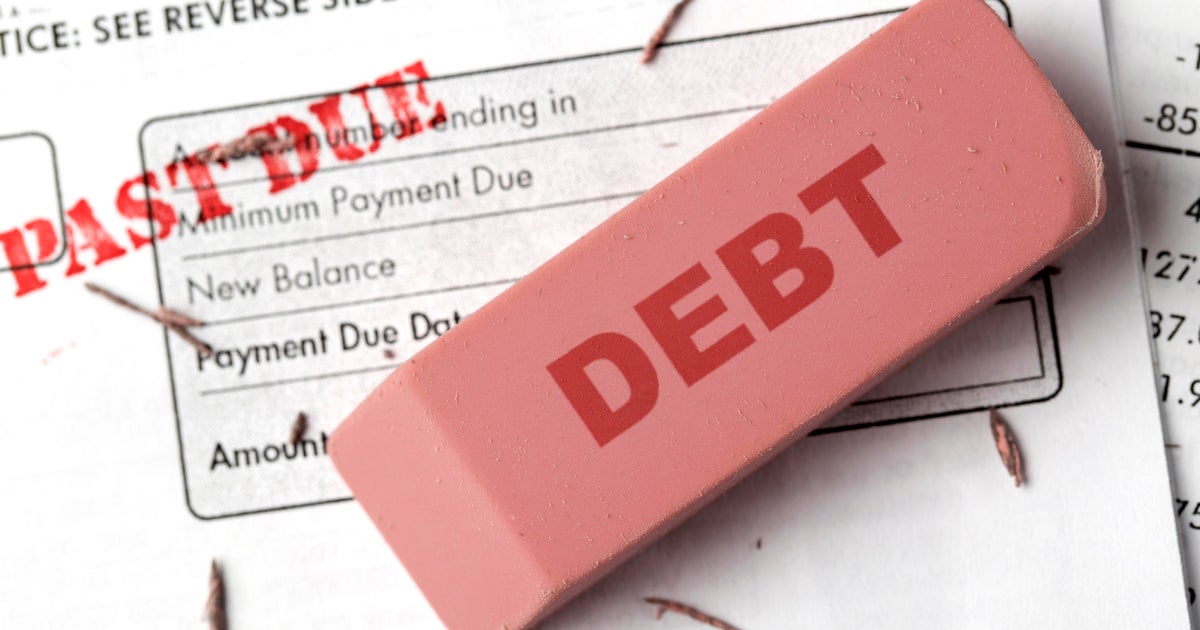6 types of debts that can be forgiven with debt settlement
It doesn't take much for the debt you're carrying to become overwhelming, especially when it comes to credit card debt. After all, credit cards come with some of the highest rates of any lending product. At nearly 23%, the average credit card rate is over 10 points higher than the average personal loan rate right now. And, credit card rates are variable — meaning that they can (and do) increase based on the overall rate environment.
With rates that high, you're putting yourself at risk of your credit card debt becoming unmanageable over time if you're not paying off what you owe in full each month. But credit card debt is just one of many types of debt that can cause major issues with your finances. Everything from old medical debt to your car or home loan can put a strain on your budget if you aren't careful.
Fortunately, there are strategies you can employ if you're struggling to pay off what you owe. And one of those is debt forgiveness, also known as debt settlement. With debt settlement, you typically work with a debt relief company to negotiate with creditors to pay a lump sum that's less than the full amount owed. And, while not all debts are eligible for settlement, several types can be negotiated.
Learn more about your other debt relief options to find the right solution for you.
6 types of debts that can be forgiven with debt settlement
There are a few different types of debt that can be settled, including:
Credit card debt
When it comes to debt settlement, credit card debt is one of the most common types of debt addressed during the process. One main reason is that credit card debt is unsecured, meaning there's no collateral backing it. This, in turn, makes creditors more willing to negotiate to recover at least some of the owed amount. And tackling your card debt through this process could pay off in terms of hefty savings. For example, it's not uncommon for credit card issuers to agree to forgive up to 50% (or more) of the total debt.
Find out which solutions today's best debt relief companies can offer you.
Personal loans
Like credit cards, unsecured personal loans have no assets tied to them, making lenders more open to negotiation. And, the fixed repayment terms of personal loans can sometimes make settlement negotiations more straightforward, too.
If you've defaulted on your personal loan payments, lenders may be particularly willing to settle to recoup some of their losses. The settlement amount for personal loans typically falls in a similar range to credit card debt, though it can vary based on a number of factors.
Medical debt
Medical debt is another area where debt settlement can be effective. For example, many healthcare providers, especially smaller practices, may be willing to negotiate to ensure they receive some payment. If medical debt has been sold to a collection agency, there may be more room for negotiation, as the agency likely purchased the debt for less than its face value.
Private student loans
Federal student loans are generally not eligible for settlement. However, private student loans may be, as they're not governed the same way as federal loans (nor are the protections the same for borrowers). So, if you've defaulted on your private student loans, it may be worth trying to settle them for a fraction of what you owe. While the outcomes vary, some lenders may be willing to engage in settlement negotiations on seriously delinquent student loan accounts — especially if you can prove that you're facing a serious financial hardship during the process.
Old debts in collections
Debts that have been in collections for an extended period may be good candidates for settlement. That's because collection agencies often purchase debts for pennies on the dollar, giving them more flexibility in settlement negotiations. And, as debts approach the statute of limitations for legal collection, creditors may be more willing to settle.
There's no limit on how many times old debts can be sold, either, which can be beneficial during the settlement process. For example, debts that have been sold multiple times can often be settled for a fraction of the original balance, especially if they're nearing the statute of limitations.
Payday loans
While payday loans are notoriously difficult to escape, settlement may be possible in some cases. For example, the extremely high interest rates that are typically tied to payday loans can provide room for negotiation. There has also been increased regulatory pressure and scrutiny on payday lenders recently. This may make some more willing to settle, especially if it allows them to avoid potential legal issues.
The bottom line
Debt settlement can be an effective strategy for reducing certain types of unsecured debts, particularly credit card balances, personal loans, medical bills and some private student loans. By pursuing debt settlement with these types, you may be able to save a significant amount on what you owe while getting yourself out of debt.
However, debt forgiveness is not a one-size-fits-all solution. Before pursuing this debt relief option, you should carefully assess your financial situation. In some cases, alternative debt relief strategies such as debt consolidation, debt management or even bankruptcy might be more appropriate.




